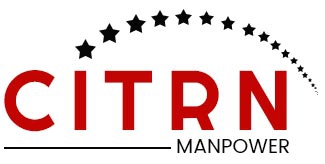
RCIP in Timmins northeastern Ontario
RCIP in Timmins northeastern Ontario
Rural and Community Immigration Pilot
The Rural and Community Immigration Pilot (RCIP) offers eligible employers a valuable opportunity to address crucial labor shortages within their communities. Through this program, employers can extend full-time permanent job offers to skilled foreign workers who possess the expertise needed to fill these gaps effectively. By participating in the RCIP, employers not only meet their immediate staffing needs but also contribute to the growth and development of their communities, creating a more robust and sustainable workforce.
RCIP: Fostering Long-Term Residency and Workforce Stability
The RCIP is tailored for individuals who intend to establish long-term residence in the community and for employers seeking to retain workers over an extended period.
Region’s update
The Rural and Community Immigration Pilot (RCIP) program is executed in various regions across Canada. As of my last update, these regions included:
| Thunder Bay, Ontario | Brandon, Manitoba |
| Sault Ste Marie, Ontario | Altona/Rhineland, Manitoba |
| Sudbury, Ontario | Claresholm, Alberta |
| Timmins, Ontario | North-Okanagan(Vernon), British Columbia |
| North Bay, Ontario | West Kootenay (Trail, Castlegar, Rossland, Nelson), British Columbia |
Employer Eligibility for Timmins Community
Business Requirements:
- Be an active, real business that has been operating for at least 2 years within the community.
- Operate in at least one priority occupation listed by the program.
- Perform 75% of business activities within the community boundaries.
Training:
- Complete the free onboarding training.
- Complete the free intercultural competency training.
Support for Newcomers:
Agree to help the applicants and their families settle, including supporting access to local services.
Public Listing:
Agree to be listed on the Timmins Regional RCIP-FCIP website.
Compliance:
- Follow the Immigration and Refugee Protection Act (IRPA) and Ontario Employment Standards Act.
- Have no outstanding penalties with the Municipal Planning & Building Department. Ensure property taxes and utilities (water/sewer) are current.
- Ensure all information provided is accurate and truthful.
Priority Sectors:
- Health
- Education, Law and Social, Community and Government Services
- Trades and Transport
- Natural Resources and Agriculture
- Business, Finance and Administration
Priority Occupations
| 11102 | Financial advisor |
| 12200 | Accounting technicians and bookkeepers |
| 13100 | Administrative officers |
| 22101 | Geological and mineral technologists and technicians |
| 21322 | Metallurgical and materials engineers |
| 31301 | Registered nurses and registered psychiatric nurses |
| 32101 | Licensed practical nurses |
| 32104 | Animal health technologists and veterinary technicians |
| 32120 | Medical laboratory technologists |
| 33102 | Nurse aides, orderlies and patient service associates |
| 41221 | Elementary school and kindergarten teachers |
| 42201 | Social and community service workers |
| 42202 | Early childhood educators and assistants |
| 44101 | Home support workers, caregivers and related occupations |
| 72106 | Welders and related machine operators |
| 72201 | Industrial electricians |
| 72400 | Construction millwrights and industrial mechanics |
| 72401 | Heavy-duty equipment mechanics |
| 72410 | Automotive service technicians, truck and bus mechanics and mechanical repairers |
| 73300 | Transport truck drivers |
| 73400 | Heavy equipment operators |
| 74203 | Automotive and heavy truck and equipment parts installers and servicers |
| 75110 | Construction trades helpers and labourers |
| 83100 | Underground production and development miners |
| 95103 | Labourers in wood, pulp and paper processing |
Occupation unique to RCIP
| Excluded occupations under Trades and Transport: | |
| 14404 | Dispatchers (employed with taxi companies) |
| 75200 | Taxi and limousine drivers and chauffeurs |
frequently asked questions
Have Any Questions? Look
Here for it Now!
What is the Rural and Community Immigration Pilot (RCIP)?
The RCIP is a community-focused immigration program designed by the Canadian government to help smaller towns and rural regions attract skilled workers. If you're ready to live and work in a close-knit community, this program offers a pathway to permanent residency in Canada.
Who is eligible to apply under RCIP?
To qualify for RCIP, you must:
- Have a valid full-time job offer from an approved employer in a participating community,
- Meet the program’s language, education, and work experience criteria,
- Be committed to settling in the community that recommends you.
At CITRN, we help you assess your eligibility and guide you every step of the way.
What are the benefits of applying through RCIP?
RCIP offers you:
- A simplified pathway to Canadian permanent residency,
- Access to communities with affordable living and job opportunities,
- Support from local organizations and a chance to integrate easily.
Plus, with CITRN’s 35+ years of experience, you're in trusted hands.
How can CITRN support my RCIP journey?
CITRN provides full-service support, including:
- Job matching with approved RCIP employers,
- Preparation of all documents and legal filings,
- Regular updates on RCIP community quotas and application timelines,
- Representation through every step of your immigration journey.
We take pride in helping you succeed — professionally, quickly, and with integrity.
Which communities are part of RCIP?
RCIP includes rural and smaller communities across Canada — from Ontario and British Columbia to Alberta and Manitoba. Each community has specific labor needs and designated job sectors. We help you find the right opportunity in the right place.
What types of jobs are available under RCIP?
Typical job roles under RCIP include:
- Healthcare and nursing,
- Skilled trades (e.g., carpenters, electricians),
- Food services and hospitality,
- Administrative and IT positions.
At CITRN, we connect you with genuine job offers that qualify under the program.
Is an LMIA required for RCIP?
No, RCIP is LMIA-exempt, meaning employers don’t need to go through the usual Labour Market Impact Assessment. However, the job offer must come from a designated employer in an RCIP-approved community. We help verify all compliance aspects.
Can I bring my family with me?
Absolutely. If your RCIP application is approved, your spouse and dependent children can join you in Canada. Depending on your status, they may be eligible for open work permits or study permits.
How long does it take to process an RCIP application?
Generally, the RCIP process includes:
- Community recommendation: 1 to 2 months,
- Permanent residency application: 12 to 16 months through IRCC.
We help you fast-track everything by ensuring zero errors and full compliance from the beginning.
Is the RCIP program still available in 2025?
Yes, the RCIP program remains active in 2025, and many communities continue to welcome foreign workers. CITRN stays updated with the latest immigration policies and community openings so that you never miss an opportunity















